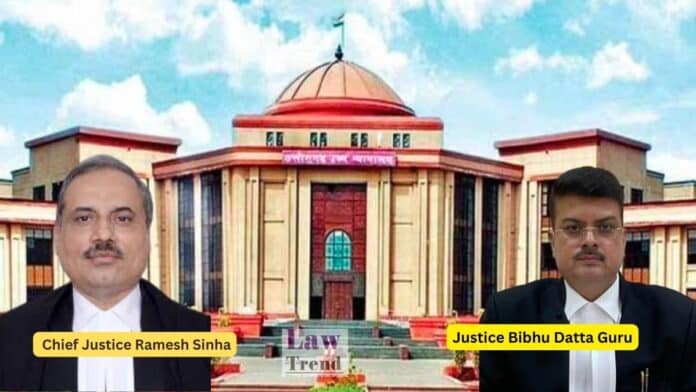The Chhattisgarh High Court has upheld the legality of hoardings installed in several tribal villages prohibiting the entry of pastors and “converted Christians,” ruling that the measure was intended to prevent forced religious conversions through fraudulent or alluring means, not to violate constitutional rights.
A division bench of Chief Justice Ramesh Sinha and Justice Bibhu Datta Guru dismissed two petitions filed by Digbal Tandi of Kanker district and Narendra Bhavani of Bastar district seeking the removal of such hoardings from eight villages. The bench said the hoardings appeared to have been installed by the respective gram sabhas “as a precautionary measure to protect the interests of indigenous tribals and local cultural heritage.”
The petitioners alleged that the state’s Panchayat Department had circulated a resolution titled “Hamari Parampara Hamari Virasat” (Our Tradition, Our Heritage), directing local bodies to prohibit pastors and converted Christians from entering villages. They claimed that gram panchayats, acting under this directive, had put up hoardings declaring that the villages fell under the Fifth Schedule Area and that the Panchayat (Extension to Scheduled Areas) Act, 1996 (PESA Act) empowered them to safeguard their culture and traditions.
According to the petitions, such hoardings were installed in Ghotiya, Kudal, Parvi, Junwani, Ghota, Havechur, Musurputta, and Sulangi villages. They argued that the resolutions and the hoardings violated Article 25 of the Constitution, which guarantees freedom of religion.
Opposing the plea, Additional Advocate General Y.S. Thakur argued that the PESA Rules explicitly authorize gram sabhas to protect local customs, places of worship, and social practices from any destructive activity. He said the hoardings were meant only to restrict pastors from outside villages who were allegedly engaging in illegal conversions of tribals through allurements, not to discriminate against Christians.
Thakur also noted that an aggrieved person could appeal the gram sabha’s decision before the sub-divisional officer (Revenue) but the petitioners had bypassed this statutory remedy by directly moving the High Court.
The bench agreed with the state’s position, observing that “the installation of hoardings for preventing forcible conversion by way of allurement or fraudulent means cannot be termed as unconstitutional.” It added that the petitioners had not exhausted the alternative remedy available under law before approaching the court.
The court further clarified that if the petitioners or any individual faced threats or obstruction in their own villages, they were free to approach the police for protection.




